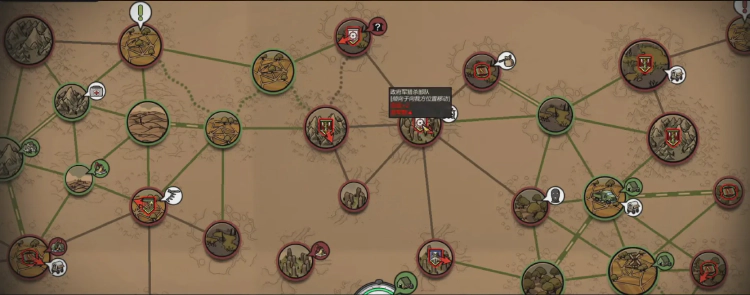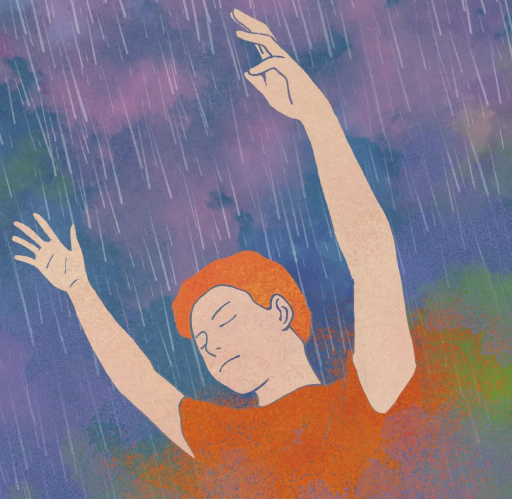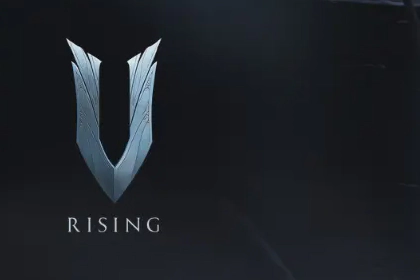
Home Behind 2 Analysis and Improvement Scenarios
Author:Ziming Wang (who likes to pick up garbage)
Contents
1. Highlights design
1.1 Picking up Garbage
Although picking up garbage looks boring, the game experience is not boring: when players pick up items hidden in the corners, the upper character will praise the player’s good eyesight; when players pick up items that they are about to miss, the upper character will say “almost missed this”; when players trigger mines, the upper character will say that they have suffered from enemy mine attacks. The player’s role is more like the commander of the squad, commanding the squad to make the right choice.
1.2 Official Army Behavior
Every few days, the government troops on the map will behave according to their tendency to act: some will tend to recover liberated areas, some will tend to garrison areas, and some will tend to move away from our squad. The impact of each type of army on the area is in line with the player’s expectations. If the army is left alone, the advancement rate of the game will be significantly reduced, the danger level will rise, the player’s squad will not be able to continue, and eventually, the whole game will be lost.

2. Improvement Scenarios
2.1 Event Design
Great success and great failure is an excellent design, but we should adjust the probability interval algorithm of great success: when the attributes required for the determination are greater than the numerical requirements of this level band, the probability of great success and success is increased, and if the attributes are much higher than the requirements of the mechanism, the part of the probability beyond 100% is converted into the trigger probability of great success by a certain percentage (similar to the passive mechanism of Sena in League of Legends, beyond the 100% blast Passive bonus is converted into the player’s life steal)

At the same time, the event can be judged by attributes other than a single attribute, many events in this work are to examine the strength and intelligence of the team, agility, and well, although not the main attributes of most characters, but also as part of the criteria for determining the event. (As a secondary assessment needs)
A part of the event design should be more rigorous: I remember an event is to dig the treasure, success will dig the depth plus one meter, and failure will be minus one meter. I failed in the first-time determination, the event text shows that my current digging depth is negative one meter, making people laugh and cry.
2.2 Player Attribute Design
This game of combat to the player’s most intuitive feeling is chaos. The feeling of experience is that the character training is not obvious enough for the improvement of combat strength. The root cause of these two problems is the design of the character attributes: each point of an attribute value increases the corresponding percentage of combat strength. This is a very conventional design for numerical designers, but for players, it is very difficult to understand: first of all, players do not know what kind of attribute bonus is used for their skills and general attacks, and players hope that during the battle, through their attribute training, they can kill enemies more easily to achieve victory, but in fact, the attribute bonus of many support and support characters does not affect their battle performance too much In the early stages of the game, when the player’s base value is low, the percentage boost is much smaller than the fixed bonus. This will also give good thinking players a dilemma: skill tree points selection, I should choose a fixed bonus, or choose a percentage bonus?
Therefore, I think that the details of the player’s attributes, bonus values, and skills should be clarified. And give the player the mechanism to reset this attribute bonus to enhance the feeling of growth brought by the character upgrade as much as possible.
2.3 Dispatch System
The dispatch system can be made into a high-risk, high-reward system, and should not be the mediocre online game mission system it is now.
According to the design of the game’s combat system, we can judge that the player’s team consists of the main team, alternate teammates, and dispatch class teammates. The dispatch system is a system that opens only in the middle and later stages of the game. At this time, there is no shortage of better quality and higher level dispatching players in the player’s team, and the dispatching mission needs to examine the player’s level and the value of certain attributes: the higher the attributes and the higher the level, the higher the probability of mission success and the higher the probability of getting extra rewards; the lower the attributes and the lower the level, the more likely the mission will fail and the more likely the dispatching player will be injured or even death. Dispatch missions can also be differentiated into different qualities, and a rewarding experience allows players to train alternates simultaneously, and high-quality missions also have the probability of receiving additional surprise rewards upon completion, increasing the sense of surprise.
The content of tasks can also be designed as a “series of tasks”: a series of tasks at the same time the player can only see the current unfinished series of tasks, and the next series of tasks will be refreshed only after completing the current series of tasks, and if all the series of tasks are completed, a very good reward can be obtained: through this the system’s mission design can indirectly set up the tension of war, shape the characters, introduce the world view, etc.
2.4 Occupation Bonus
The current occupation bonus does not give enough sense of achievement because the designers' thinking is still that they want the squad to remain just an ordinary revolutionary guerrilla until the end, but this is inconsistent with the plot: this seemingly insignificant guerrilla squad, which defeated all the warlords' right-hand men and liberated village after village and town after town, is the spark that ignited the revolution and should grow its team and strengthen the camp s armed. But considering the dispatch system, the revolutionary morale mechanism, and the limitations of the combat system, it is appropriate to control the number of team members, but this also means that the task of giving the players a sense of achievement in the occupation and creating a revolutionary atmosphere is handed over to the occupation bonus mechanism. The designers of this work did not take this layer into account.
My suggestion is that the occupation of each region, according to the number of days to give players resources (like the SLG land), the special occupation has the probability to provide players with talent introduction, trade, weapons gifts, and a series of popular support events, so that players experience the “rural surround the city” revolutionary feeling.





